Adzuki Bean
How to submit an article:
- Registered users can submit any published journal article that has a unique DOI (Digital Object Identifier) name or link to Research Hub.
- For example, you can paste the full DOI link:
https://doi.org/10.1109/5.771073or just the DOI name:10.1109/5.771073into the field above and click submit. - The person who is first to submit a valid article to Research Hub will forever be credited for it, and every article submission earns you +6 Research Points.
Also known as: Red Bean
Related Topics
Published research studies are articles that present the findings of original research that has undergone a peer-review process and has been made publicly available in scholarly journals, books or other media.

Nutritional Composition, Efficacy, and Processing of Vigna angularis (Adzuki Bean) for the Human Diet: An Overview
2022 Sep 17 Molecules Wang Y, Yao X, Shen H, Zhao R, Li Z, Shen X, et al.
Review Article Adzuki Bean Antibacterial LysineAdzuki beans' high lysine content, antioxidative, antibacterial, and anti-inflammatory properties highlight their dual-use as a nutritious food source and a therapeutic agent for various diseases.

Cooked Adzuki Bean Reduces High-Fat Diet-Induced Body Weight Gain, Ameliorates Inflammation, and Modulates Intestinal Homeostasis in Mice
2022 Jun 09 Frontiers in Nutrition Zhao Q, Liu Z, Zhu Y, Wang H, Dai Z, Yang X, et al.
Animal Study Metabolic Syndrome Obesity Anti-Inflammatory Fatty Liver Disease Gut Microbiota Adzuki BeanCooked adzuki beans contribute notably to preventing obesity and regulating gut microbiota composition, while also alleviating systemic inflammation and metabolic disorders.
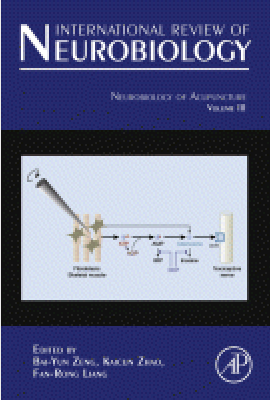
A survey of biological nitrogen fixation in adzuki beans, soybeans, and mung beans, three legumes in traditional Chinese medicine
2022 Jan International Review of Neurobiology Shahrajabian MH, Sun W, Cheng Q
Review Article Mung Bean Soybean Adzuki BeanAdzuki and Mung beans have great potential as functional foods for health promotion and disease prevention, offering an excellent source of essential nutrients and biodiversity for sustainable agriculture.

Adzuki Bean Alleviates Obesity and Insulin Resistance Induced by a High-Fat Diet and Modulates Gut Microbiota in Mice
2021 Sep 17 Nutrients Zhao Q, Hou D, Fu Y, Xue Y, Guan X, Shen Q
Animal Study Obesity Adzuki Bean Gut MicrobiotaAdzuki beans, when added to a high-fat diet, lessen obesity, improve liver function, enhance insulin sensitivity, and balance gut microbiota.
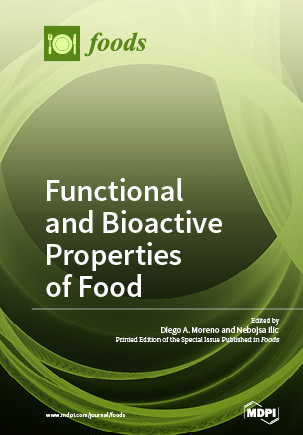
Black Soybean and Adzuki Bean Extracts Lower Blood Pressure by Modulating the Renin-Angiotensin System in Spontaneously Hypertensive Rats
2021 Jul 06 Foods Jeong EW, Park SY, Yang YS, Baek YJ, Yun DM, Kim HJ, et al.
Animal Study Black Soybean High Blood Pressure Renin-Angiotensin System Adzuki BeanAdzuki bean extracts have shown more potential than black soybean extracts in lowering blood pressure in hypertensive rats, acting on the renin-angiotensin system.
Research insights are moderated by the Research Hub team and offer an at-a-glance overview of interesting research findings.

2022 Molecules
Adzuki beans' high lysine content, antioxidative, antibacterial, and anti-inflammatory properties highlight their dual-use as a nutritious food source and a therapeutic agent for various diseases.
Review Article Antibacterial Lysine
Nutritional Composition, Efficacy, and Processing of Vigna angularis (Adzuki Bean) for the Human Diet: An Overview
Wang Y, Yao X, Shen H, Zhao R, Li Z, Shen X, et al.

2022 Frontiers in Nutrition
Cooked adzuki beans contribute notably to preventing obesity and regulating gut microbiota composition, while also alleviating systemic inflammation and metabolic disorders.
Animal Study Anti-Inflammatory Fatty Liver Disease Gut Microbiota Metabolic Syndrome Obesity
Cooked Adzuki Bean Reduces High-Fat Diet-Induced Body Weight Gain, Ameliorates Inflammation, and Modulates Intestinal Homeostasis in Mice
Zhao Q, Liu Z, Zhu Y, Wang H, Dai Z, Yang X, et al.

2022 International Review of Neurobiology
Adzuki and Mung beans have great potential as functional foods for health promotion and disease prevention, offering an excellent source of essential nutrients and biodiversity for sustainable agriculture.
Review Article Mung Bean Soybean
A survey of biological nitrogen fixation in adzuki beans, soybeans, and mung beans, three legumes in traditional Chinese medicine
Shahrajabian MH, Sun W, Cheng Q

2021 Nutrients
Adzuki beans, when added to a high-fat diet, lessen obesity, improve liver function, enhance insulin sensitivity, and balance gut microbiota.
Animal Study Gut Microbiota Obesity
Adzuki Bean Alleviates Obesity and Insulin Resistance Induced by a High-Fat Diet and Modulates Gut Microbiota in Mice
Zhao Q, Hou D, Fu Y, Xue Y, Guan X, Shen Q

2021 Foods
Adzuki bean extracts have shown more potential than black soybean extracts in lowering blood pressure in hypertensive rats, acting on the renin-angiotensin system.
Animal Study Black Soybean High Blood Pressure Renin-Angiotensin System
Black Soybean and Adzuki Bean Extracts Lower Blood Pressure by Modulating the Renin-Angiotensin System in Spontaneously Hypertensive Rats
Jeong EW, Park SY, Yang YS, Baek YJ, Yun DM, Kim HJ, et al.
Review Articles
Review articles summarise and critically evaluate the current state of research on a specific topic or field by synthesising multiple primary research studies.

Nutritional Composition, Efficacy, and Processing of Vigna angularis (Adzuki Bean) for the Human Diet: An Overview
2022 Sep 17 Molecules Wang Y, Yao X, Shen H, Zhao R, Li Z, Shen X, et al.
Review Article Adzuki Bean Antibacterial LysineAdzuki beans' high lysine content, antioxidative, antibacterial, and anti-inflammatory properties highlight their dual-use as a nutritious food source and a therapeutic agent for various diseases.

A survey of biological nitrogen fixation in adzuki beans, soybeans, and mung beans, three legumes in traditional Chinese medicine
2022 Jan International Review of Neurobiology Shahrajabian MH, Sun W, Cheng Q
Review Article Mung Bean Soybean Adzuki BeanAdzuki and Mung beans have great potential as functional foods for health promotion and disease prevention, offering an excellent source of essential nutrients and biodiversity for sustainable agriculture.
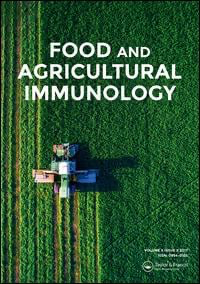
Nutritional composition and biological activities of 17 Chinese adzuki bean (Vigna angularis) varieties
2015 Sep 28 Food and Agricultural Immunology Zhenxing Shi, Yang Yao, Yingying Zhu & Guixing Ren
Review Article Adzuki Bean AntioxidantAdzuki beans possessed strong ABTS free-radical-scavenging capacity and α-glucosidase inhibition activity.
Clinical Trials
Clinical trials are research studies that involve people and are conducted to evaluate the safety and efficacy of new treatments or interventions, such as drugs, medical devices, or behavioural therapies.
Study Protocols
Published study protocols are detailed plans that outline the objectives, methodology, statistical analyses, and organisation of a research study that have been made publicly available for others to review and use as a reference.
Presentation Slides

Review Article
Adzuki beans' high lysine content, antioxidative, antibacterial, and anti-inflammatory properties highlight their dual-use as a nutritious food source and a therapeutic agent for various diseases.
Wang Y, Yao X, Shen H, Zhao R, Li Z, Shen X, Wang F, Chen K, Zhou Y, Li B, Zheng X, Lu S

Animal Study
Cooked adzuki beans contribute notably to preventing obesity and regulating gut microbiota composition, while also alleviating systemic inflammation and metabolic disorders.
Zhao Q, Liu Z, Zhu Y, Wang H, Dai Z, Yang X, Ren X, Xue Y, Shen Q

Review Article
Adzuki and Mung beans have great potential as functional foods for health promotion and disease prevention, offering an excellent source of essential nutrients and biodiversity for sustainable agriculture.
Shahrajabian MH, Sun W, Cheng Q

Animal Study
Adzuki beans, when added to a high-fat diet, lessen obesity, improve liver function, enhance insulin sensitivity, and balance gut microbiota.
Zhao Q, Hou D, Fu Y, Xue Y, Guan X, Shen Q

Animal Study
Adzuki bean extracts have shown more potential than black soybean extracts in lowering blood pressure in hypertensive rats, acting on the renin-angiotensin system.
Jeong EW, Park SY, Yang YS, Baek YJ, Yun DM, Kim HJ, Go GW, Lee HG

Experimental Study
Probiotic-enriched mung and adzuki bean sprouts demonstrate increased antioxidant potential and exhibit cytostatic and cytotoxic effects on human stomach cancer cells.
Świeca M, Herok A, Piwowarczyk K, Sikora M, Ostanek P, Gawlik-Dziki U, Kapusta I, Czyż J
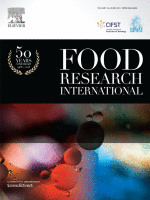
Animal Study
Adzuki bean paste consumption can reduce fat accumulation in rats by lowering energy intake and altering gut microbiota composition.
Han KH, Ohashi S, Sasaki K, Nagata R, Pelpolage S, Fukuma N, Reed JD, Shimada K, Kadoya N, Fukushima M
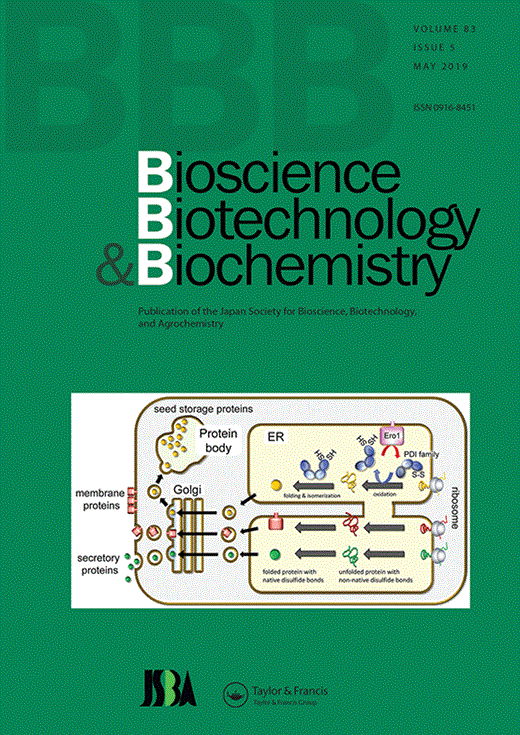
Randomised Controlled Trial
Adzuki bean extract administered once a day can result in increased HDL-C concentration.
Kitano-Okada T, Nagata R, Han KH, Mikami N, Satoh K, Nishihira J, Sasaki K, Ohba K, Fukusima M

Network Pharmacology
Adzuki beans, rich in flavonoids and saponins, can potentially prevent obesity by inhibiting enzymes related to fat accumulation and enhancing lipid breakdown.
Liu R, Zheng Y, Cai Z, Xu B
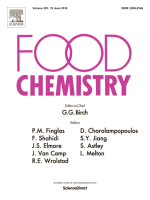
Experimental Study
In 2004, polyphenols were isolated from mung bean sprouts, which exert antibacterial activity against Helicobacter pylori, one of the most common causative organisms in gastrointestinal disorders.
Jiaqiang Luo, Weixi Cai, Tong Wu, Baojun Xu
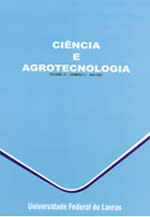
Experimental Study
Adzuki beans present anti-atherogenic, anti-thrombogenic and hypocholesterolemic effects, and the ratios PUFA: SFA and n-6:n-3 were considered appropriate for biological system maintenance of a healthy organism.
Hou D, Yousaf L, Xue Y, et al.

Review Article
Adzuki beans possessed strong ABTS free-radical-scavenging capacity and α-glucosidase inhibition activity.
Zhenxing Shi, Yang Yao, Yingying Zhu & Guixing Ren

Experimental Study
Adzuki bean exhibited the strongest antiproliferative properties in a dose-dependent manner against all digestive system cancer cell lines, ovary cancer cell SK-OV-3 and breast cancer cell MCF-7 among all legumes tested.
Xu B, Chang SKC
Executive Summary
Write an executive summary in the form of a blog article on the topic of "Research into Chinese medicine treatment for Adzuki Bean" summarising the research below and using language that can be easily understood by patients and avoiding medical jargon using a professional and caring tone of voice.
Write an executive summary in the form of a blog article on the topic of "Researched Chinese medicine treatments for Adzuki Bean" summarising the research below in an objective and easy to understand way, and using language that can be easily understood by patients. Group the article into Chinese medicine treatments first, followed by nutrition and other treatments. Avoid using medical jargon and use a professional and caring tone of voice.
Write me a concise but easy to understand executive summary on the topic of "Chinese medicine treatments for Adzuki Bean" based on the following research that I will give you. Your summary should be 2 paragraphs long in Australian English spelling and include references to the studies.
A Review Article published in 2022 in the journal Molecules found that Adzuki beans' high lysine content, antioxidative, antibacterial, and anti-inflammatory properties highlight their dual-use as a nutritious food source and a therapeutic agent for various diseases. The study methodology involved comprehensive analysis of the nutritional profile and health benefits offered by adzuki beans. Different varieties of the beans were tested to assess disparities in the contents and compositions of starch, protein, fat, polysaccharides, and polyphenols. The processing characteristic components such as isolated protein and heated flavor were also examined to aid in the development of adzuki bean-based food products. The results showed that adzuki beans have diverse benefits both in terms of nutrition and health. Their proteins were found to be rich in lysine, an essential amino acid, compensating for its shortage in the everyday diet typically containing cereals. The antioxidant, antibacterial, and anti-inflammatory properties are capable of enhancing human health in multiple ways. Adzuki beans and their extracts were found to hold potential in preventing and treating conditions like diabetes, kidney disease, obesity, and even cognitive decline from a high-fat diet. This discovery highlighted the usefulness of adzuki beans as not just food but also a practical ingredient in medicinal treatments.
A Animal Study published in 2022 in the journal Frontiers in Nutrition found that Cooked adzuki beans contribute notably to preventing obesity and regulating gut microbiota composition, while also alleviating systemic inflammation and metabolic disorders. The methodology involved a controlled experiment where mice were fed diets of varying lipid content: a low-fat diet or a high-fat diet. The specific twist in this experiment was the inclusion or exclusion of cooked adzuki beans to their diet, ensuring 15% of the diet comprised of this. The duration of this dietary regimen was 12 weeks. In the discussion of results, it was discovered that cooked adzuki beans provided key beneficial effects. This included a significant inhibition of weight gain and hepatic steatosis, a reduction in high levels of specific markers such as serum triacylglycerol, alanine aminotransferase, and aspartate aminotransferase, providing a counter to systemic inflammation and metabolism-related endotoxemia commonly found in those consuming a high-fat diet. Moreover, the inclusion of adzuki beans positively affected the gut microbiota composition, reducing fat-inducing bacteria and enriching the gut with beneficial bacteria to help alleviate inflammation and metabolic disorders associated with high-fat diets.
A Review Article published in 2022 in the journal International Review of Neurobiology found that Adzuki and Mung beans have great potential as functional foods for health promotion and disease prevention, offering an excellent source of essential nutrients and biodiversity for sustainable agriculture. This study explores the health benefits and agricultural sustainability of adzuki and mung beans. Adzuki beans, traditionally used in traditional Chinese medicine, provide essential fatty acids, fiber, minerals, and phytochemicals promoting health and combating disease. These beans also have natural nitrogen-fixing properties beneficial to cropping systems. Similarly, mung beans contribute protein and nitrogen to agriculture, supporting soil health and crop yields. They also offer health benefits including antioxidant, antifungal, antiinflammatory, and antimicrobial activities. Additionally, both adzuki and mung beans, through biological nitrogen fixation, may lessen reliance on chemical fertilizers, promoting environmental and economic sustainability. The results suggest both adzuki and mung beans can play a significant role in health promotion and in sustainable agriculture. Influencing health with their nutrient richness and variety, these beans provide essential fatty acids, fiber, minerals, and phytochemicals. With their nitrogen-fixing properties, they can enhance soil quality and reduce dependence on chemical fertilizers. Simultaneously, by being able to restore organic matter to the soil, they can curb pests and disease issues. Thus, these beans serve as a viable economic and environmental option for future agricultural systems while promoting health.
A Animal Study published in 2021 in the journal Nutrients found that Adzuki beans, when added to a high-fat diet, lessen obesity, improve liver function, enhance insulin sensitivity, and balance gut microbiota. In the experiment, mice were placed on one of three diets for 12 weeks: a low-fat diet, a high-fat diet, or a high-fat diet supplemented with 15% adzuki beans. The study observed and tested for changes related to obesity, lipid accumulation, serum lipid and lipopolysaccharide levels, liver function, hepatic steatosis, glucose homeostasis, insulin sensitivity, and gut microbiota imbalances. Through a process called PICRUSt2 analysis, the researchers were then able to draw potential associations between changes in the gut microbiota and the metabolism of various substances. In the discussion of the results, the supplementation of adzuki beans to a high-fat diet had a significant impact. Obesity and lipid accumulation were visibly reduced, as were negative impacts on liver function and unhealthy levels of serum lipids and lipopolysaccharides. Notably, glucose homeostasis was improved through an increase in insulin sensitivity. The imbalances in gut microbiota, typically seen in a high-fat diet, were significantly reversed through adzuki bean supplementation. High-fat diet dependent taxa returned to a more normal status, which in turn suggested associations with the metabolism of carbohydrates, lipids, sulfur, and two types of amino acids.
A Animal Study published in 2021 in the journal Foods found that Adzuki bean extracts have shown more potential than black soybean extracts in lowering blood pressure in hypertensive rats, acting on the renin-angiotensin system. The methodology used in this research involved the administration of varying volumes of black soybean and adzuki bean ethanol extracts to seven groups of rats, which included one group of normal rats and six groups of spontaneously hypertensive rats. The purpose of the extracts was to explore their antihypertensive effects on aspects such as blood pressure, the renin-angiotensin system, and aortic lesions. The results revealed that black soybean and adzuki bean extracts significantly reduced various biomarkers such as liver weight, triglycerides, total cholesterol, and systolic blood pressure. On a comparative basis, the adzuki bean extracts (AE) demonstrated a greater antihypertensive potential than black soybean extracts (BE). Specifically, the angiotensin II level and blood pressure in the AE-treated group were lower than those in the BE-treated group, leading to the conclusion that AE exhibits higher antihypertensive potential.
A Experimental Study published in 2020 in the journal Molecules found that Probiotic-enriched mung and adzuki bean sprouts demonstrate increased antioxidant potential and exhibit cytostatic and cytotoxic effects on human stomach cancer cells. The study utilized mung bean sprouts (MBS) and adzuki bean sprouts (ABS), enriched with probiotic strain 299v, and their gastric digests were tested on human stomach cancer cells, AGS. Differentiation was shown through ABS containing quercetin and kaempferol derivatives while MBS featured kaempferol and apigenin derivatives, each displaying a higher antioxidant potential compared to controls. The viability of AGS reduced notably with low concentrations of ABS extracts, displaying inhibitive action which pointed to their cytostatic effects. In discussing the results, it is noticed that the sprouts showcased dose-independent cytostatic effects. However, ABS extracts were found to be more effective in reducing the proliferation of AGS, compared to MBS. Notably, the ABS extracts exerted about 70% inhibitions, elucidating their strong inhibitive power. Concurrently, the phytochemicals from these probiotic-enriched sprouts were observed to reduce the associated activity significantly. Observations of increased vinculin level, apoptotic shape of cell nuclei, alongside decreased cell motility and proliferation provide evidence that these extracts exhibited not only cytostatic but also cytotoxic activity.
A Animal Study published in 2020 in the journal Food Research International found that Adzuki bean paste consumption can reduce fat accumulation in rats by lowering energy intake and altering gut microbiota composition. The study evaluated the impact of adzuki bean paste (ABP) on visceral fat accumulation in rats by administering different doses of ABP - 30% and 58.9% in their diets for a period of 28 days. ABP, being a good source of indigestible carbohydrates with fiber and resistant starch, forms an influential part of the rats' diet. The daily dietary energy intake was observed during this period, with particular attention to fecal lipid and fecal acidic sterol excretions, which were found to be increased in a dose-dependent manner. Certain observations within the body of the rats, including the condition of cecal content and fecal moisture, were also monitored. In discussing the results of administrating ABP in the diet, it was observed that visceral fat accumulation and serum lipid levels were reduced. Both groups of rats - those given a diet with 30% ABP and those with 58.9% ABP - showed significantly higher cecal acetic, propionic, and n-butyric acids and lowered cecal pH, regardless of the ABP dose. The ABP diet also reflected altered microbial community data, with higher alpha-diversities than a control group. The study further revealed through cecal bacterial 16S rRNA gene sequencing that the ABP supplemented diets also impacted the ratio of two types of bacteria, Firmicutes, and Bacteroidetes. The findings hence suggest that the cecal fermentation of fiber and resistant starch in ABP was instrumental in reducing fat accumulation.
A Randomised Controlled Trial published in 2019 in the journal Bioscience, Biotechnology, and Biochemistry found that Adzuki bean extract administered once a day can result in increased HDL-C concentration. This finding suggests that adzuki bean polyphenols are a novel food ingredient capable of maintaining lipid homeostasis by modulating the HDL-C levels, without causing any adverse effects. This short-term study represents the first step in establishing the practicality, safety, and HDL-C-maintaining effects of adzuki bean extract in subjects with moderate-to-high LDL-C levels.
A Network Pharmacology published in 2017 in the journal Frontiers in Pharmacology found that Adzuki beans, rich in flavonoids and saponins, can potentially prevent obesity by inhibiting enzymes related to fat accumulation and enhancing lipid breakdown. The study involved both in vitro and in vivo experimentations. Flavonoids and saponins from adzuki beans were examined for possible inhibitory effects on pancreatic lipase and α-glucosidase activities, and noradrenaline-induced lipolysis. Additionally, an obesity model in mice, stimulated by a high-fat diet, was established to explore the beans' potential anti-obesity properties. Over a period of 8 weeks, changes in the mice's serum and liver lipid parameters were carefully monitored during the intervention process. The results demonstrated that extracts from adzuki beans could enhance the process of lipolysis. When administered orally to mice, the beans significantly lessened the total body weight and accumulation of adipose tissue compared to the group on a high-fat-diet. Changes were also observed in the lipid levels, both in serum and liver, with notable reductions in total cholesterol, triglycerides, low-density lipoprotein-cholesterol, and liver lipids. These findings suggest that adzuki beans' anti-obesity effects may be due to the inhibitory action of their flavonoids and saponins on α-glucosidase and pancreatic lipase activities, along with the lipid-metabolizing properties of their active components.
A Experimental Study published in 2016 in the journal Food Chemistry found that In 2004, polyphenols were isolated from mung bean sprouts, which exert antibacterial activity against Helicobacter pylori, one of the most common causative organisms in gastrointestinal disorders. The utility of bioactive compounds from food legumes as natural antimicrobial agents are commonly known as biocides. Mung bean sprouts have potent antiviral and prophylactic activities against respiratory syncytial virus and Herpes Simplex virus −1, and these activities were comparable with Acyclovir. The underlying mechanism was attributed to active components of mung bean sprouts potentially induce antiviral cytokines in human cells and thereby nullify the actions on viral proliferation. Similarly, antifungal and antiviral potency of two beans proteins, designated alpha (28 kDa) and beta (28 kDa) proteins were isolated and were capable of inhibiting human immunodeficiency virus reverse transcriptase and glycohydrolases associated with HIV infection. Further, antifungal peptides (7.3 kDa, 9.03 kDa) were isolated from beans, which exerted an antifungal effects and inhibited mycelial growth in Fusarium oxysporum, F. solani, Pythium aphanidermatum, Sclerotium rolfsii, Mycosphaerella arachidicola, and antibacterial effects on Staphylococcus aureus. In addition, two proteins, Mungin (18-kDa) and chitinase (30.8 kDa) isolated from mung bean seeds possess antifungal activity against Rhizoctonia solani, Coprinus comatus, Mycosphaerella arachidicola, Botrytis cinerea, and Fusarium oxysporum. Mungin and chitinase exert an inhibitory activity against α- and β-glucosidases, suppressing [3H] thymidine in the corporation by mouse splenocytes. In 2004, polyphenols were isolated from mung bean sprouts, which exert antibacterial activity against Helicobacter pylori, one of the most common causative organisms in gastrointestinal disorders. Furthermore, several in vitro and in vivo studies have also been reported that mung bean seeds are protective against sepsis.
A Experimental Study published in 2016 in the journal Ciencia e Agrotecnologia found that Adzuki beans present anti-atherogenic, anti-thrombogenic and hypocholesterolemic effects, and the ratios PUFA: SFA and n-6:n-3 were considered appropriate for biological system maintenance of a healthy organism. All samples showed polyunsatured fatty acids prevalence and nutritional indices and ratios considered adequate for biological system maintenance of a healthy organism. The grains presented significant contents of tocopherols and vitamin E activity, resulting in a high contribution to the dietary reference intake. Significant contents of iron, manganese and zinc were also found in the azuki beans, and they are very important mainly due to their function as cofactors in metabolic reactions. Phenolic compounds and flavonoids corroborated with other studies and contributed to the antioxidant activity.
A Review Article published in 2015 in the journal Food and Agricultural Immunology found that Adzuki beans possessed strong ABTS free-radical-scavenging capacity and α-glucosidase inhibition activity. All the adzuki beans possessed strong ABTS free-radical-scavenging capacity and α-glucosidase inhibition activity. Significant positive correlations of the antioxidant activity with total phenolic acids, total flavonoids and free caffeic acid contents were observed. These results are anticipated to providing useful information on the development of adzuki bean-based functional food.
A Experimental Study published in 2012 in the journal Food Chemistry found that Adzuki bean exhibited the strongest antiproliferative properties in a dose-dependent manner against all digestive system cancer cell lines, ovary cancer cell SK-OV-3 and breast cancer cell MCF-7 among all legumes tested. This research involved comparing the health-promoting effects of various food legumes. The Cellular Antioxidant Activity (CAA) was assessed using a fluorescence microplate reader and in vitro animal cell cultivation. The antiproliferative properties against cancer cells were evaluated through the MTT method in an in vitro cell culture system. Additionally, the study quantified phytochemicals (total phenolic, procyanidin, saponin, and phytic acid) and chemical antioxidant activities (DPPH free radical scavenging activity, oxygen radical absorbing capacity, peroxyl radical scavenging capacity). The results indicated significant variations in phytochemical and antioxidant activities among different legumes. Notably, adzuki bean demonstrated the strongest dose-dependent antiproliferative effects against various cancer cell lines, including those from the digestive system, ovary, and breast. Meanwhile, black soybean showed the highest levels of saponin, phytic acid, and the strongest cellular antioxidant activities. These findings suggest that food legumes, particularly adzuki beans and black soybeans, are promising as natural antioxidants for health promotion and cancer prevention.
Moderation Tools
Topic
Sign In
Users not signed in are limited to viewing the 5 most recent items of content.